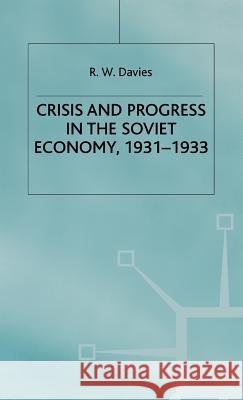The Industrialisation of Soviet Russia Volume 4: Crisis and Progress in the Soviet Economy, 1931-1933 » książka
The Industrialisation of Soviet Russia Volume 4: Crisis and Progress in the Soviet Economy, 1931-1933
ISBN-13: 9780333311059 / Angielski / Twarda / 1996 / 612 str.
The Industrialisation of Soviet Russia Volume 4: Crisis and Progress in the Soviet Economy, 1931-1933
ISBN-13: 9780333311059 / Angielski / Twarda / 1996 / 612 str.
(netto: 709,25 VAT: 5%)
Najniższa cena z 30 dni: 713,24
ok. 22 dni roboczych
Bez gwarancji dostawy przed świętami
Darmowa dostawa!
The profound economic crisis of 1931-33 undermined the process of industrialisation and the stability of the regime. In spite of feverish efforts to achieve the over ambitious first five-year plan, the great industrial projects lagged far behind schedule. These were years of inflation, economic disorder and of terrible famine in 1933. In response to the crisis, policies and systems changed significantly. Greater realism prevailed: more moderate plans, reduced investment, strict monetary controls, and more emphasis on economic incentives and the role of the market. The reforms failed to prevent the terrible famine of 1933, in which millions of peasants died. But the last months of 1933 saw the first signs of an industrial boom, the outcome of the huge investments of previous years. Using the previously secret archives of the Politburo and the Council of People's Commissars, the author shows how during these formative years the economic system acquired the shape which it retained until the collapse of the Soviet Union in 1991.











